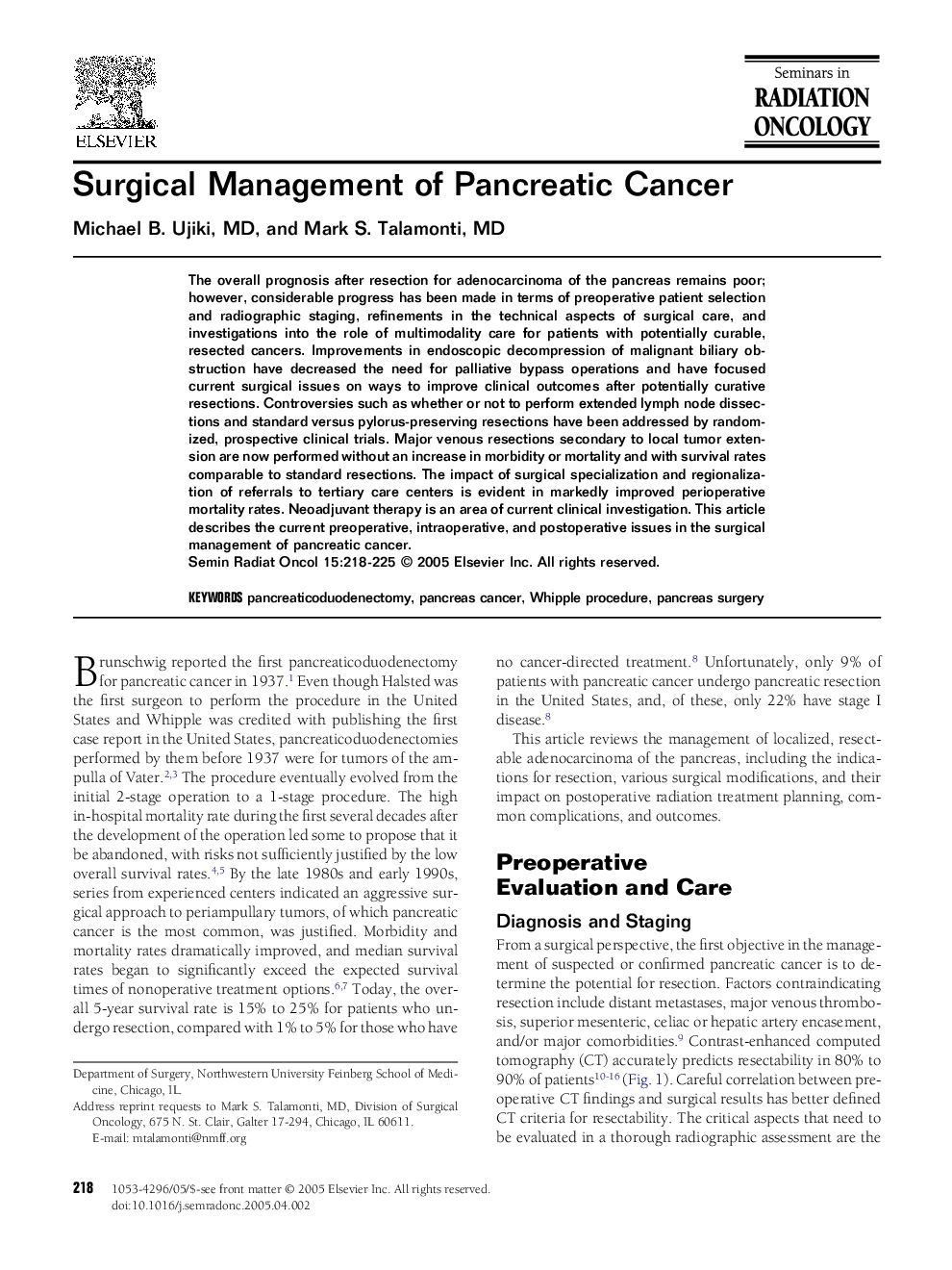| Article ID | Journal | Published Year | Pages | File Type |
|---|---|---|---|---|
| 9088471 | Seminars in Radiation Oncology | 2005 | 8 Pages |
Abstract
The overall prognosis after resection for adenocarcinoma of the pancreas remains poor; however, considerable progress has been made in terms of preoperative patient selection and radiographic staging, refinements in the technical aspects of surgical care, and investigations into the role of multimodality care for patients with potentially curable, resected cancers. Improvements in endoscopic decompression of malignant biliary obstruction have decreased the need for palliative bypass operations and have focused current surgical issues on ways to improve clinical outcomes after potentially curative resections. Controversies such as whether or not to perform extended lymph node dissections and standard versus pylorus-preserving resections have been addressed by randomized, prospective clinical trials. Major venous resections secondary to local tumor extension are now performed without an increase in morbidity or mortality and with survival rates comparable to standard resections. The impact of surgical specialization and regionalization of referrals to tertiary care centers is evident in markedly improved perioperative mortality rates. Neoadjuvant therapy is an area of current clinical investigation. This article describes the current preoperative, intraoperative, and postoperative issues in the surgical management of pancreatic cancer.
Related Topics
Health Sciences
Medicine and Dentistry
Oncology
Authors
Michael B. MD, Mark S. MD,
